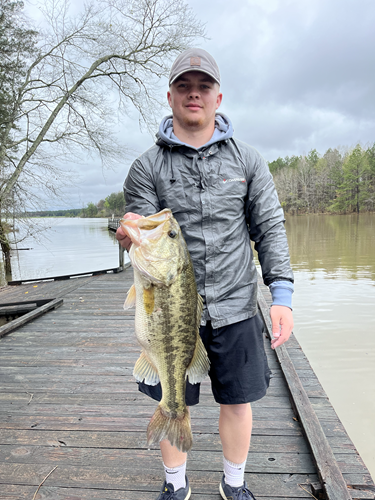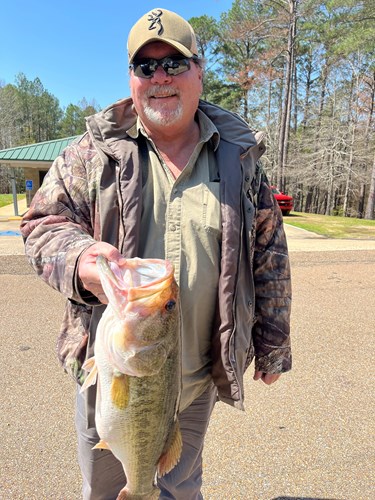Alert
The boat ramp is open at this time.
Boat lanes have been cut to allow for easier access to different parts of the lake, but be aware that IDLE SPEED IS REQUIRED in these areas. Channels are marked with red/green markers for main channels and gold markers for side channels.
Fishing Report
Calling Panther Lake - 4/22/2024 3:45:43 PM| Species | Detail | |
| Largemouth Bass | Bass fishing has been excellent! Try spinnerbaits, trick worms, and crankbaits. All have been producing in water from the shoreline out to 8 feet. | |
| Crappie | Crappie fishing has been good. Some crappie are being caught of points in 20 foot of water and some in 2.5 feet of water. Finding them is the key. Jigs in 1/16 oz with a dark colored body and chartreuse tail and minnows have been the go to baits. | |
| Bream | Bream fishing is good and they should be moving towards bedding areas as the weather warms. | |
| Catfish | Catfishing is good and consistent. Get out in the deeper water, anchor down, throw out live bait, stink baits, worms, etc., and hold on! | |
Water Temperature: 66°F Water Visibility: 26 inches
Please dispose of trash in barrels provided.


Report provided by Mr. Pat Drew, Calling Panther Lake Manager
Special Fishing RegulationsSpecies |
||
| Species | Type | Length To Release |
| Black Bass (largemouth, smallmouth and spotted) | Maximum length limit | 20 inches & over |
| Catfish | No length limit | |
Creel Limits (per person, per day) |
||
| Type | Amount | Additional Information |
| Black Bass (combined largemouth, smallmouth and spotted) | 10 | Anglers can harvest only one bass over 20 inches |
| Catfish | 10 | Creel limit for all State Fishing and State Park Lakes |
- Only rod and reel or pole fishing is allowed on State Fishing Lakes except that carp, gar, buffalo, and bowfin may be taken by use of bow and arrow at night only after purchasing a valid permit for fishing and/or boating. No other gear is allowed at these lakes.
- Fishing is not allowed from courtesy piers adjacent to boat ramps. Night fishing is allowed from the bank or boats which are in compliance with state and coast guard regulations.
Additional Information:
For information about Calling Panther Lake, please call (601) 892-4776.
Calling Panther Lake depth map
Mississippi Department of Wildlife, Fisheries, and Parks Fisheries Biologists use various sampling methods to assess the fish populations in the State’s waters. Sampling results for selected water bodies are summarized in Reel Facts Sheets.









